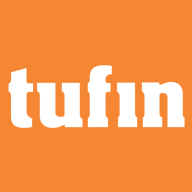


The competing products are Tufin Orchestration Suite and Prisma Cloud by Palo Alto Networks, which compete in the network and cloud security category. Prisma Cloud generally shows an upper hand due to its extensive features and high user satisfaction.
Features: Users recognize the comprehensive policy management, network security features, and strong customer support of Tufin Orchestration Suite. Prisma Cloud by Palo Alto Networks offers broader cloud security capabilities, integration across various cloud services, and detailed threat intelligence.
Room for Improvement: Tufin Orchestration Suite needs better scalability, enhanced multi-cloud support, and improved documentation. Prisma Cloud has areas for improvement in the complexity of the initial setup, more intuitive navigation, and reducing false positives in alerts.
Ease of Deployment and Customer Service: Tufin Orchestration Suite is known for its straightforward deployment process, although customer service can sometimes be slow. Prisma Cloud presents a complex deployment process, but it is backed by a responsive customer service team.
Pricing and ROI: Tufin Orchestration Suite is relatively affordable and offers a good ROI. Despite being more expensive, Prisma Cloud by Palo Alto Networks is seen as worth the investment due to its advanced features and comprehensive cloud security. Users generally feel that the overall value provided by Prisma Cloud justifies its higher cost.
The detailed information PingSafe gives about how to fix vulnerabilities reduces the time spent on remediation by about 70 to 80 percent.
After implementing SentinelOne, it takes about five to seven minutes.
Cloud Native Security does offer ROI.
It eliminates the need for additional hardware, making it a financially and technically sound investment.
Reputation and data security are the two most important things to a financial institution.
We may have prevented a security breach with remediation of the findings.
The Orchestration Suite saves time when implementing rules.
When we send an email, they respond quickly and proactively provide solutions.
They took direct responsibility for the system and could solve queries quickly.
Having a reliable team ready and willing to assist with any issues is essential.
They can respond with technical documentation or pass on the case to the next level because it requires the development of a new feature or changing a feature due to a bug.
You do not even get a valid or contextual answer.
The solution's one-on-one support session should be extended by at least half an hour.
The support team is effective; they connect to the network quickly and help resolve any issues that arise.
The team is eager to help in fixing issues.
In recent years, they have stopped providing specialized engineering support.
I would rate it a 10 out of 10 for scalability.
Scalability is no longer a concern because Cloud Native Security is a fully cloud-based resource.
I would rate the scalability of PingSafe 10 out of 10.
It's very scalable and very easy to use.
It's scalable.
The scalability is also a 10 out of 10.
No lag, no crashing, no downtime.
It's a reliable solution that the organization is increasingly adopting for its robust features and security.
We contacted Cloud Native Security, and they addressed it in a day.
I would rate it a ten out of ten for stability.
There were some instances when it was not as stable, particularly the Defender setup, where it did not work for three days, so my team had to escalate, and then it suddenly worked.
Prisma Cloud is a stable platform.
If I had to ask for anything to make it easier, it would be signed images that are GPG signed and a public repository where we can get the bits from.
If they can merge Kubernetes Security with other modules related to Kubernetes, that would help us to get more modules in the current subscription.
As organizations move to the cloud, a cloud posture management tool that offers complete cloud visibility becomes crucial for maintaining compliance.
From a developer's perspective, especially for organizations like banks developing their applications, ensuring API security before deploying them to the cloud is crucial.
Prisma Cloud is an excellent tool.
Even though documentation was available, it took a while for a new person to understand what integration meant, what will be achieved after the integration, or how the integration needed to be done on the Azure or AWS side.
Issues can arise in larger enterprises, particularly concerning policy-based forwarding and NAT traffic.
The analytics features of Tufin Orchestration Suite are challenging to use and require technical expertise, which is a concern as there is not much knowledge in this field in Thailand.
The design needs improvement, particularly in recognizing target devices and target files.
Covering our 50,000 endpoints would have nearly bankrupted most security programs, even well-funded ones like ours.
I believe the enterprise version costs around $55 per user per year.
There are some tools that are double the cost of Cloud Native Security.
The cost was not on the higher side.
That's why a lot of our clients are shifting from cloud-native to Prisma Cloud: because of its effectiveness and because it is budget-friendly as well.
The solution is very expensive.
The pricing of Orchestration Suite is high, which is a point for improvement.
FireMon and Skybox are considered more cost-effective.
Tufin and AlgoSec are at the same level in terms of pricing.
For example, we can set up an automation alert so that if a threat is detected on an endpoint, we can automatically take action on our Okta or AD environment, such as locking the account that was signed in or forcing a password reset.
This helps visualize potential attack paths and even suggests attack paths a malicious actor might take.
The infrastructure-as-code feature is helpful for discovering open ports in some of the modules.
Since the agent is already installed in the container, we can protect it directly from the application side.
The automation capabilities are excellent.
We have integrated a number of pipelines so that whenever any development is built, the image is scanned for vulnerabilities.
AlgoSec adds more value with its vulnerability control, which benefits organizations by reducing expenses associated with audits.
New employees can quickly grasp the various IPs, devices, and the network's logical and physical layout within a short period.
It offers automation capabilities that are very helpful, especially for network security orchestration and applying policies.
| Product | Market Share (%) |
|---|---|
| Prisma Cloud by Palo Alto Networks | 14.5% |
| Wiz | 23.8% |
| Microsoft Defender for Cloud | 10.4% |
| Other | 51.300000000000004% |
| Product | Market Share (%) |
|---|---|
| Tufin Orchestration Suite | 22.6% |
| AlgoSec | 22.5% |
| FireMon Security Manager | 17.8% |
| Other | 37.099999999999994% |



| Company Size | Count |
|---|---|
| Small Business | 44 |
| Midsize Enterprise | 21 |
| Large Enterprise | 53 |
| Company Size | Count |
|---|---|
| Small Business | 34 |
| Midsize Enterprise | 20 |
| Large Enterprise | 58 |
| Company Size | Count |
|---|---|
| Small Business | 29 |
| Midsize Enterprise | 13 |
| Large Enterprise | 152 |
SentinelOne Singularity Cloud Security offers a streamlined approach to cloud security with intuitive operation and strong integration capabilities for heightened threat detection and remediation efficiency.
Singularity Cloud Security stands out for its real-time detection and response, effectively minimizing detection and remediation timelines. Its automated remediation integrates smoothly with third-party tools enhancing operational efficiency. The comprehensive console ensures visibility and support for forensic investigations. Seamless platform integration and robust support for innovation are notable advantages. Areas for development include improved search functionality, affordability, better firewall capabilities for remote users, stable agents, comprehensive reporting, and efficient third-party integrations. Clarity in the interface, responsive support, and real-time alerting need enhancement, with a call for more automation and customization. Better scalability and cost-effective integration without compromising capabilities are desired.
What are SentinelOne Singularity Cloud Security's standout features?SentinelOne Singularity Cloud Security is deployed in industries needing robust cloud security posture management, endpoint protection, and threat hunting. Utilized frequently across AWS and Azure, it assists in monitoring, threat detection, and maintaining compliance in diverse environments while providing real-time alerts and recommendations for proactive threat management.
Prisma Cloud by Palo Alto Networks provides comprehensive cloud-native security solutions. It covers dynamic workload identity, automated forensics, and multi-cloud protection, ensuring robust security across diverse cloud platforms.
Prisma Cloud delivers advanced capabilities for managing cloud security across AWS, Azure, and GCP platforms. It offers dynamic workload identity creation, real-time monitoring, and seamless integration into CI/CD pipelines. With automation, centralized dashboards, and enhanced visibility, users effectively manage security misconfigurations and vulnerabilities. While optimizing cloud environments through runtime protection and compliance, Prisma Cloud faces challenges with its navigation, pricing, and limited automation capabilities. Users seek improvements in API security, role-based access controls, and documentation quality, emphasizing the need for enhanced customization and reporting features.
What are the important features of Prisma Cloud?
What benefits or ROI should users consider in reviews?
Industries like finance and telecom rely on Prisma Cloud for managing cloud security posture and container security. Teams utilize its capabilities across hybrid and multi-cloud settings to ensure compliance and robust threat protection. Features like misconfiguration detection and runtime monitoring are critical in promoting security objectives in these sectors.
Tufin enables organizations to automate their security policy visibility, risk management, provisioning and compliance across their multi-vendor, hybrid environment. Customers gain visibility and control across their network, ensure continuous compliance with security standards and embed security enforcement into workflows and development pipelines.
We monitor all Cloud-Native Application Protection Platforms (CNAPP) reviews to prevent fraudulent reviews and keep review quality high. We do not post reviews by company employees or direct competitors. We validate each review for authenticity via cross-reference with LinkedIn, and personal follow-up with the reviewer when necessary.